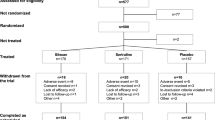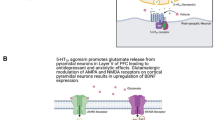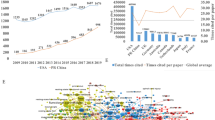Abstract
The role of the brain-derived neurotrophic factor (BDNF) in the pathophysiology of major depressive disorder (MDD) remains to be elucidated. Recent post hoc analyses indicated a potential association of three polymorphisms in the BDNF gene with worse treatment outcome in patients with the subtype of melancholic depression. We aimed at replicating these findings in a German naturalistic multicenter follow-up. Three polymorphisms in the BDNF gene (rs7103411, rs6265 (Val66Met) and rs7124442) were genotyped in 324 patients with MDD and 470 healthy controls. We applied univariate tests and logistic regression models stratifying for depression subtype and gender. The three polymorphisms were not associated with MDD as diagnosis. Further, no associations were found in univariate tests. With logistic regression, we only found a tendency towards an association of the rs6265 (Val66Met) polymorphism with overall response to treatment (response rates: GG (val/val) < GA (val/met) < AA (met/met); p = 0.0129) and some gender differences for the rs6265 (Val66Met) and rs7103411 polymorphisms. Treatment outcome stratified for subtypes of depression did not differ significantly between the investigated polymorphisms or using haplotype analyses. However, results showed a tendency towards significance. At this stage, we cannot support an influence of these three polymorphisms. Further studies in larger patient samples to increase sample sizes of subgroups are warranted.
Similar content being viewed by others
References
D’Sa C, Duman RS (2002) Antidepressants and neuroplasticity. Bipolar Disord 4:183–194
Duman RS, Heninger GR, Nestler EJ (1997) A molecular and cellular theory of depression. Arch Gen Psychiatry 54:597–606
Scharinger C, Rabl U, Pezawas L, Kasper S (2011) The genetic blueprint of major depressive disorder: contributions of imaging genetics studies. World J Biol Psychiatry 12:474–488
Campbell S, Macqueen G (2004) The role of the hippocampus in the pathophysiology of major depression. J Psychiatry Neurosci 29:417–426
Kanellopoulos D, Gunning FM, Morimoto SS, Hoptman MJ, Murphy CF, Kelly RE et al (2011) Hippocampal volumes and the brain-derived neurotrophic factor val66met polymorphism in geriatric major depression. Am J Geriatr Psychiatry 19:13–22
Gonul AS, Kitis O, Eker MC, Eker OD, Ozan E, Coburn K (2011) Association of the brain-derived neurotrophic factor Val66Met polymorphism with hippocampus volumes in drug-free depressed patients. World J Biol Psychiatry 12:110–118
Eker C, Kitis O, Taneli F, Eker OD, Ozan E, Yucel K et al (2010) Correlation of serum BDNF levels with hippocampal volumes in first episode, medication-free depressed patients. Eur Arch Psychiatry Clin Neurosci 260:527–533
Blugeot A, Rivat C, Bouvier E, Molet J, Mouchard A, Zeau B et al (2011) Vulnerability to depression: from brain neuroplasticity to identification of biomarkers. J Neurosci 31:12889–12899
Chiba S, Numakawa T, Ninomiya M, Richards MC, Wakabayashi C, Kunugi H (2012) Chronic restraint stress causes anxiety- and depression-like behaviors, downregulates glucocorticoid receptor expression, and attenuates glutamate release induced by brain-derived neurotrophic factor in the prefrontal cortex. Prog Neuropsychopharmacol Biol Psychiatry 39(1):112–119
Wong ML, Dong C, Andreev V, Rcos-Burgos M, Licinio J (2012) Prediction of susceptibility to major depression by a model of interactions of multiple functional genetic variants and environmental factors. Mol Psychiatry 17:624–633
Kurita M, Nishino S, Kato M, Numata Y, Sato T (2012) Plasma brain-derived neurotrophic factor levels predict the clinical outcome of depression treatment in a naturalistic study. PLoS ONE 7:e39212
Dreimuller N, Schlicht KF, Wagner S, Peetz D, Borysenko L, Hiemke C et al (2012) Early reactions of brain-derived neurotrophic factor in plasma (pBDNF) and outcome to acute antidepressant treatment in patients with Major Depression. Neuropharmacology 62:264–269
Papakostas GI, Shelton RC, Kinrys G, Henry ME, Bakow BR, Lipkin SH et al. (2011) Assessment of a multi-assay, serum-based biological diagnostic test for major depressive disorder: a Pilot and Replication Study. Mol Psychiatry
Choi MJ, Kang RH, Lim SW, Oh KS, Lee MS (2006) Brain-derived neurotrophic factor gene polymorphism (Val66Met) and citalopram response in major depressive disorder. Brain Res 1118:176–182
Gratacos M, Soria V, Urretavizcaya M, Gonzalez JR, Crespo JM, Bayes M et al (2008) A brain-derived neurotrophic factor (BDNF) haplotype is associated with antidepressant treatment outcome in mood disorders. Pharmacogenomics J 8:101–112
Licinio J, Dong C, Wong ML (2009) Novel sequence variations in the brain-derived neurotrophic factor gene and association with major depression and antidepressant treatment response. Arch Gen Psychiatry 66:488–497
Tsai SJ, Hong CJ, Liou YJ (2008) Brain-derived neurotrophic factor and antidepressant action: another piece of evidence from pharmacogenetics. Pharmacogenomics 9:1353–1358
Kato M, Serretti A (2010) Review and meta-analysis of antidepressant pharmacogenetic findings in major depressive disorder. Mol Psychiatry 15:473–500
Kocabas NA, Antonijevic I, Faghel C, Forray C, Kasper S, Lecrubier Y et al (2011) Brain-derived neurotrophic factor gene polymorphisms: influence on treatment response phenotypes of major depressive disorder. Int Clin Psychopharmacol 26:1–10
Domschke K, Lawford B, Laje G, Berger K, Young R, Morris P et al (2010) Brain-derived neurotrophic factor (BDNF) gene: no major impact on antidepressant treatment response. Int J Neuropsychopharmacol 13:93–101
Seemuller F, Riedel M, Obermeier M, Bauer M, Adli M, Kronmuller K et al (2010) Outcomes of 1014 naturalistically treated inpatients with major depressive episode. Eur Neuropsychopharmacol 20:346–355
Hamilton M (1967) Development of a rating scale for primary depressive illness. Br J Soc Clin Psychol 6:278–296
Bauer M, Bschor T, Pfennig A, Whybrow PC, Angst J, Versiani M et al (2007) World federation of societies of biological psychiatry (WFSBP) guidelines for biological treatment of unipolar depressive disorders in primary care. World J Biol Psychiatry 8:67–104
Bauer M, Whybrow PC, Angst J, Versiani M, Moller HJ (2002) World federation of societies of biological psychiatry (WFSBP) guidelines for biological treatment of unipolar depressive disorders, part 1: acute and continuation treatment of major depressive disorder. World J Biol Psychiatry 3:5–43
American Psychiatric Association (2000) Practice guideline for the treatment of patients with major depressive disorder (revision). Am J Psychiatry 157(4 Suppl):1–45
Fava M, Rush AJ, Alpert JE, Balasubramani GK, Wisniewski SR, Carmin CN et al (2008) Difference in treatment outcome in outpatients with anxious versus nonanxious depression: a STAR*D report. Am J Psychiatry 165:342–351
NCBI (2012) dbSNP databank. http://www.ncbi.nlm.nih.gov/projects/SNP/snp_ref.cgi?rs=7103411;rs=6265;rs=7124442. Accessed 19 Jul 2012
Purcell S, Cherny SS, Sham PC (2003) Genetic power calculator: design of linkage and association genetic mapping studies of complex traits. Bioinformatics 19:149–150
Barrett JC, Fry B, Maller J, Daly MJ (2005) Haploview: analysis and visualization of LD and haplotype maps. Bioinformatics 21:263–265
Benjamini Y, Hochberg Y (2011) Controlling the false discovery rate: a practical and powerful approach to multiple testing. J Roy Stat Soc: Ser B (Methodol) 57:289–300
R Development Core Team (2011) R: a language and environment for statistical computing. Vienna. version: R 2.13.2; http://CRAN.R-project.org
Chen L, Lawlor DA, Lewis SJ, Yuan W, Abdollahi MR, Timpson NJ et al (2008) Genetic association study of BDNF in depression: finding from two cohort studies and a meta-analysis. Am J Med Genet B Neuropsychiatr Genet 147B:814–821
Verhagen M (2010) van der MA, van Deurzen PA, Janzing JG, rias-Vasquez A, Buitelaar JK et al. Meta-analysis of the BDNF Val66Met polymorphism in major depressive disorder: effects of gender and ethnicity. Mol Psychiatry 15:260–271
Fuchikami M, Morinobu S, Segawa M, Okamoto Y, Yamawaki S, Ozaki N et al (2011) DNA methylation profiles of the brain-derived neurotrophic factor (BDNF) gene as a potent diagnostic biomarker in major depression. PLoS ONE 6:e23881
Gatt JM, Kuan SA, Dobson-Stone C, Paul RH, Joffe RT, Kemp AH et al (2008) Association between BDNF Val66Met polymorphism and trait depression is mediated via resting EEG alpha band activity. Biol Psychol 79:275–284
Gatt JM, Nemeroff CB, Schofield PR, Paul RH, Clark CR, Gordon E et al (2010) Early life stress combined with serotonin 3A receptor and brain-derived neurotrophic factor valine 66 to methionine genotypes impacts emotional brain and arousal correlates of risk for depression. Biol Psychiatry 68:818–824
Gatt JM, Nemeroff CB, Dobson-Stone C, Paul RH, Bryant RA, Schofield PR et al (2009) Interactions between BDNF Val66Met polymorphism and early life stress predict brain and arousal pathways to syndromal depression and anxiety. Mol Psychiatry 14:681–695
Pezawas L, Meyer-Lindenberg A, Goldman AL, Verchinski BA, Chen G, Kolachana BS et al (2008) Evidence of biologic epistasis between BDNF and SLC6A4 and implications for depression. Mol Psychiatry 13:709–716
Czira ME, Wersching H, Baune BT, Berger K (2011) Brain-derived neurotrophic factor gene polymorphisms, neurotransmitter levels, and depressive symptoms in an elderly population. Age. doi:10.1007/s11357-011-9313-6
Zou YF, Ye DQ, Feng XL, Su H, Pan FM, Liao FF (2010) Meta-analysis of BDNF Val66Met polymorphism association with treatment response in patients with major depressive disorder. Eur Neuropsychopharmacol 20:535–544
Juckel G, Schumacher C, Giegling I, Assion HJ, Mavrogiorgou P, Pogarell O et al (2010) Serotonergic functioning as measured by the loudness dependence of auditory evoked potentials is related to a haplotype in the brain-derived neurotrophic factor (BDNF) gene. J Psychiatr Res 44:541–546
Bocchio-Chiavetto L, Miniussi C, Zanardini R, Gazzoli A, Bignotti S, Specchia C et al (2008) 5-HTTLPR and BDNF Val66Met polymorphisms and response to rTMS treatment in drug resistant depression. Neurosci Lett 437:130–134
Uher R, Dernovsek MZ, Mors O, Hauser J, Souery D, Zobel A et al (2011) Melancholic, atypical and anxious depression subtypes and outcome of treatment with escitalopram and nortriptyline. J Affect Disord 132:112–120
Acknowledgments
The network study was conducted in 12 psychiatric hospitals: Berlin Charité Campus Mitte (Andreas Heinz, Mazda Adli, Katja Wiethoff), Berlin Charité Campus Benjamin Franklin (Isabella Heuser, Gerd Bischof), Berlin Auguste Viktoria Klinik (Joachim Zeiler, Robert Fisher, Cornelia Fähser), Berlin St. Hedwig (Florian Standfest), Berlin St. Joseph (Dorothea Schloth), Düsseldorf (Wolfgang Gaebel, Joachim Cordes, Arian Mobascher), Gabersee (Gerd Laux, Sissi Artmann), Haar (Wolfram Bender, Nicole Theyson), Halle (Andreas Marneros, Dörthe Strube, Yvonne Reinelt), Heidelberg (Christoph Mundt, Klaus Kronmüller, Daniela Victor), München LMU (Hans-Jürgen Möller, Ulrich Hegerl, Roland Mergel, Michael Riedel, Florian Seemüller, Florian Wickelmaier, Markus Jäger, Thomas Baghai, Ingrid Borski, Constanze Schorr, Roland Bottlender), München MPI (Florian Holsboer, Matthias Majer, Marcus Ising). We thank Thelma Coutts for assistance with language.
Conflict of interest
The authors declare that this work was performed within the framework of the German Research Network on Depression, which was funded by the German Federal Ministry for Education and Research BMBF (01GI0219). The BMBF had no further role in study design, in the collection, analysis and interpretation of data, in the writing of the report, or in the decision to submit the paper for publication. There are no further conflicts of interest to declare.
Author information
Authors and Affiliations
Corresponding author
Rights and permissions
About this article
Cite this article
Musil, R., Zill, P., Seemüller, F. et al. No influence of brain-derived neurotrophic factor (BDNF) polymorphisms on treatment response in a naturalistic sample of patients with major depression. Eur Arch Psychiatry Clin Neurosci 263, 405–412 (2013). https://doi.org/10.1007/s00406-012-0364-1
Received:
Accepted:
Published:
Issue Date:
DOI: https://doi.org/10.1007/s00406-012-0364-1




